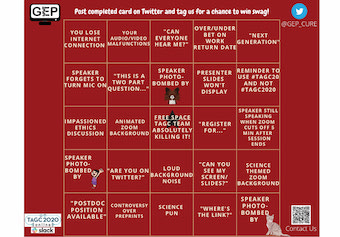
GEP Virtually Exhibited at TAGC 2020
While COVID-19 prohibited us from exhibiting at The Allied Genetics Conference (TAGC) 2020 in person, we thoroughly enjoyed figuring out

While COVID-19 prohibited us from exhibiting at The Allied Genetics Conference (TAGC) 2020 in person, we thoroughly enjoyed figuring out
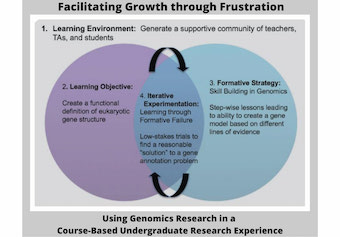
A hallmark of the research experience is encountering difficulty and working through those challenges to achieve success. This ability is essential to being a successful scientist, but replicating such challenges in a teaching setting can be difficult. Our observations suggested that the students’ learning experience is continuous and recursive, frequently beginning with frustration but eventually leading to success as they come up with defendable gene models.

Please join us in welcoming the following new members who just completed their online training to join the GEP: Dr. Ana Almeida, Dr. Christopher Ellison, Dr. Alisha Howard, and Dr. Shallee Page. We look forward to their participation in the GEP! Special thanks to the chairs of GEP’s New Member Training Subcommittee— Drs. Catherine Reinke and Jennifer Mierisch— for facilitating their online training!
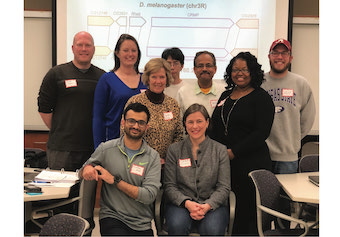
The Southeast Regional Node held its first New Member Training Welcome Workshop at The University of Alabama February 7-9, 2020.
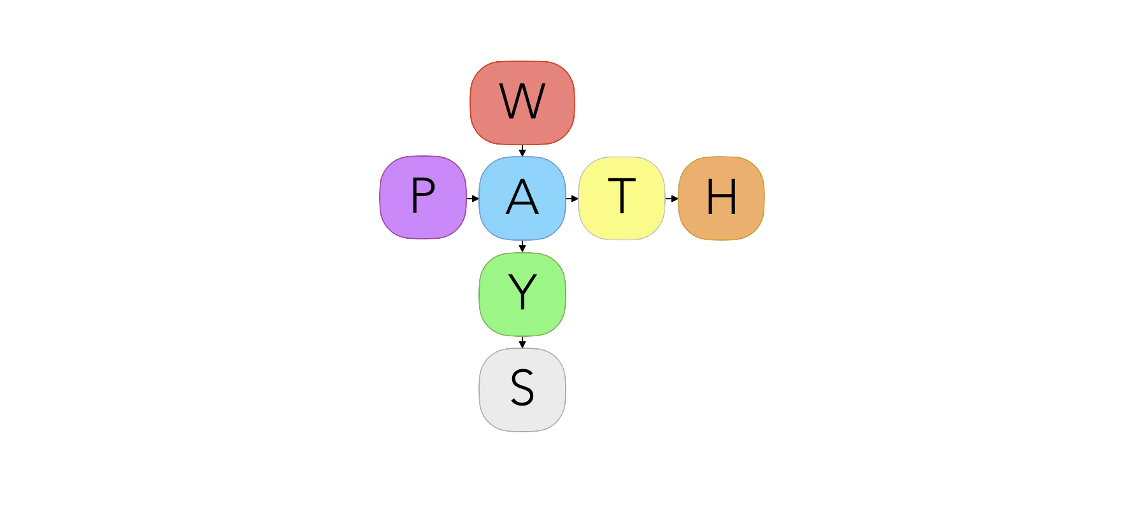
We are very excited to release the beta version of the newest piece of GEP curriculum, the Pathways Project: Annotation Walkthrough! Katie has been working really hard to bring this into being. We appreciate the indispensable help from the GEP members who shared with us their own curriculum and personal observations and piloted our earlier drafts. This walkthrough illustrates how to apply the GEP annotation strategy for the Pathways Project to construct a gene model for the Ras homolog enriched in brain (Rheb) gene in Drosophila yakuba.

Our Program Director, Dr. Laura Reed, and GEP staff members Katie Sandlin and Chinmay Rele took a road trip from

The GEP was recently awarded two five-year grants— a $2.2 million award from the National Institutes of Health and a $1.99 million grant from the National Science Foundation. The paired approaches of these grants give GEP broader outreach and a unique opportunity to determine if a seemingly more economical online training strategy is actually sufficient to support implementation and persistence in the GEP.
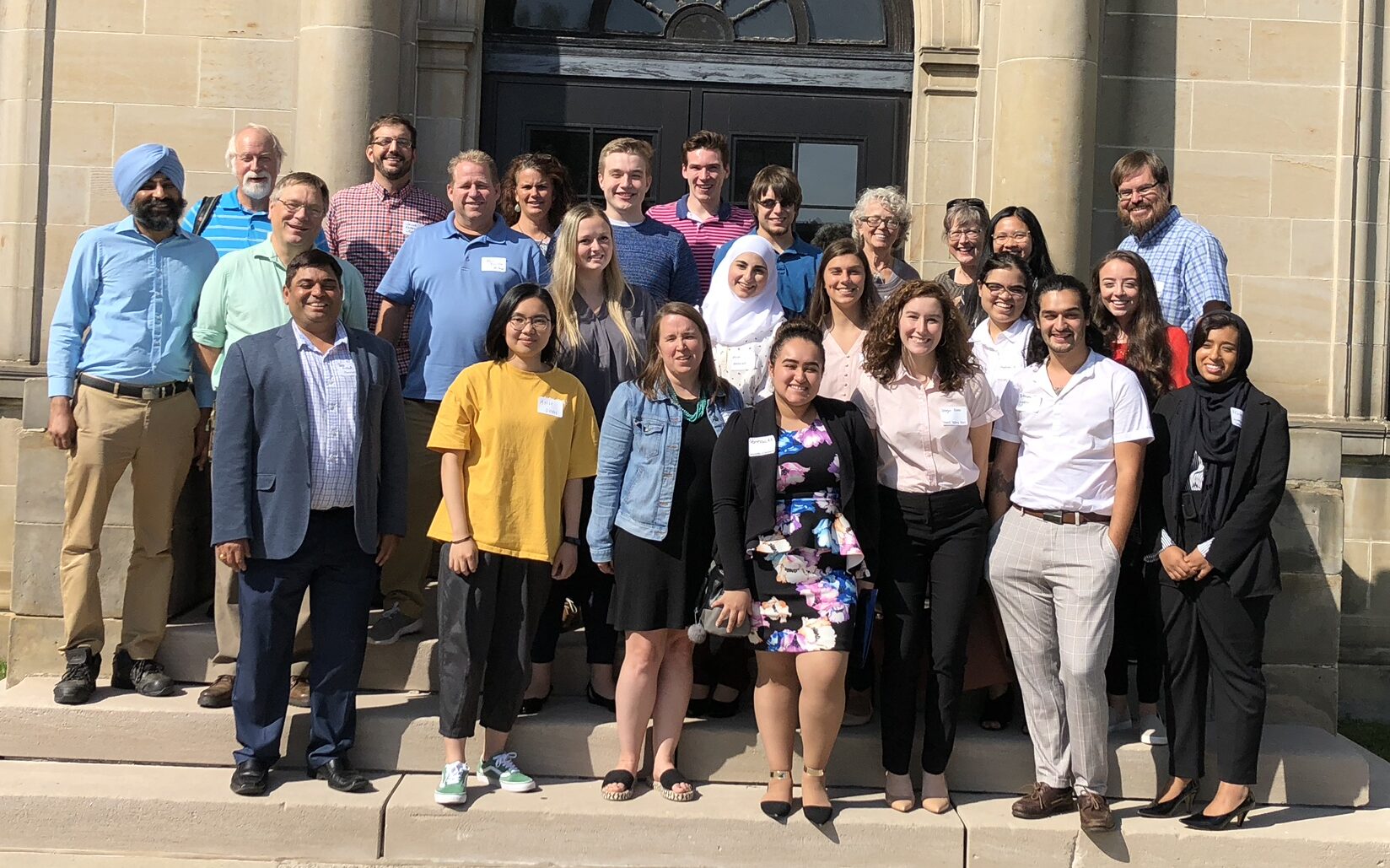
The Midwest North Node, which covers Michigan, Ohio, Illinois, Indiana, and Wisconsin, held the GEP’s first NIH-funded Regional Node Meeting